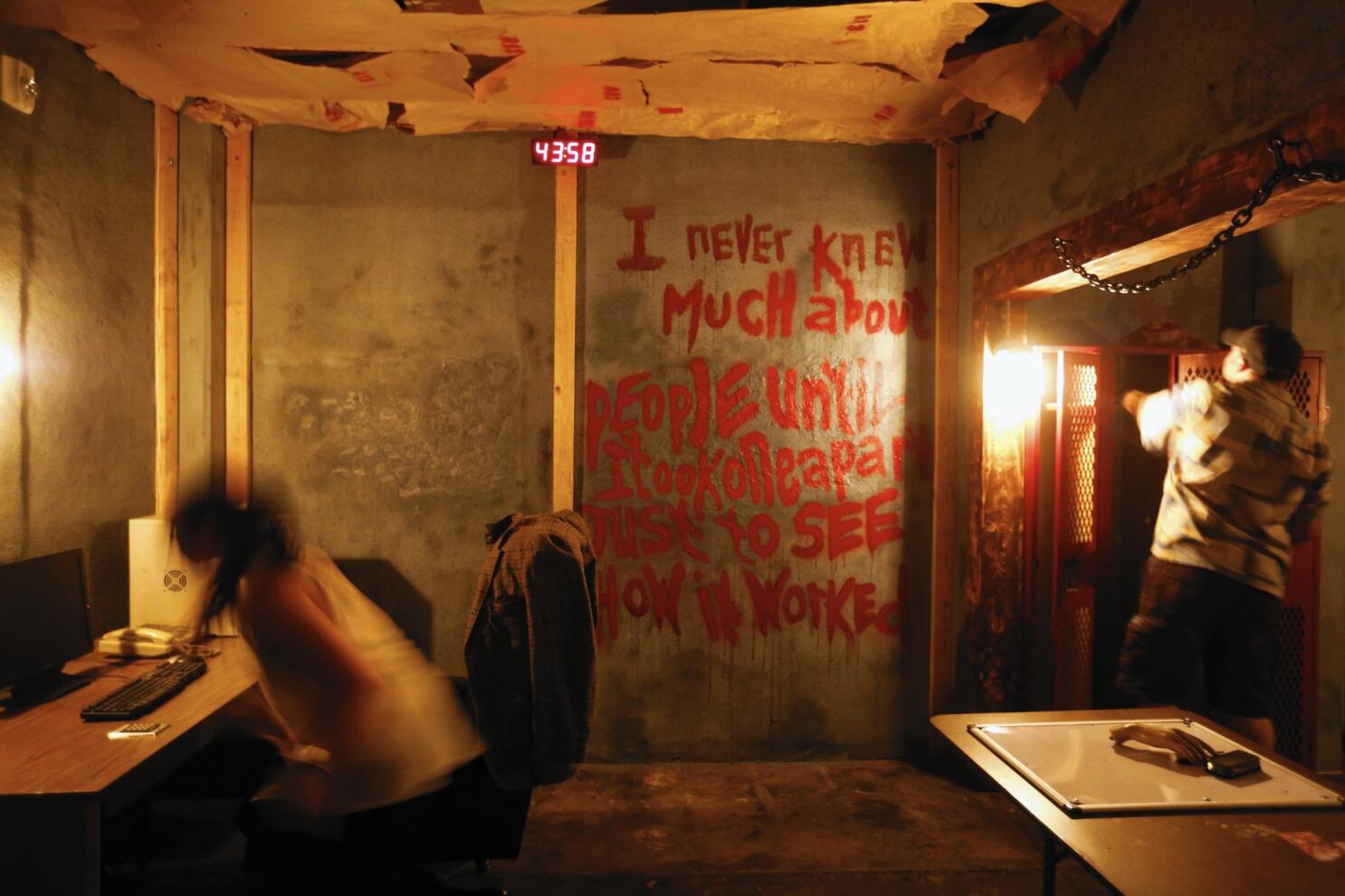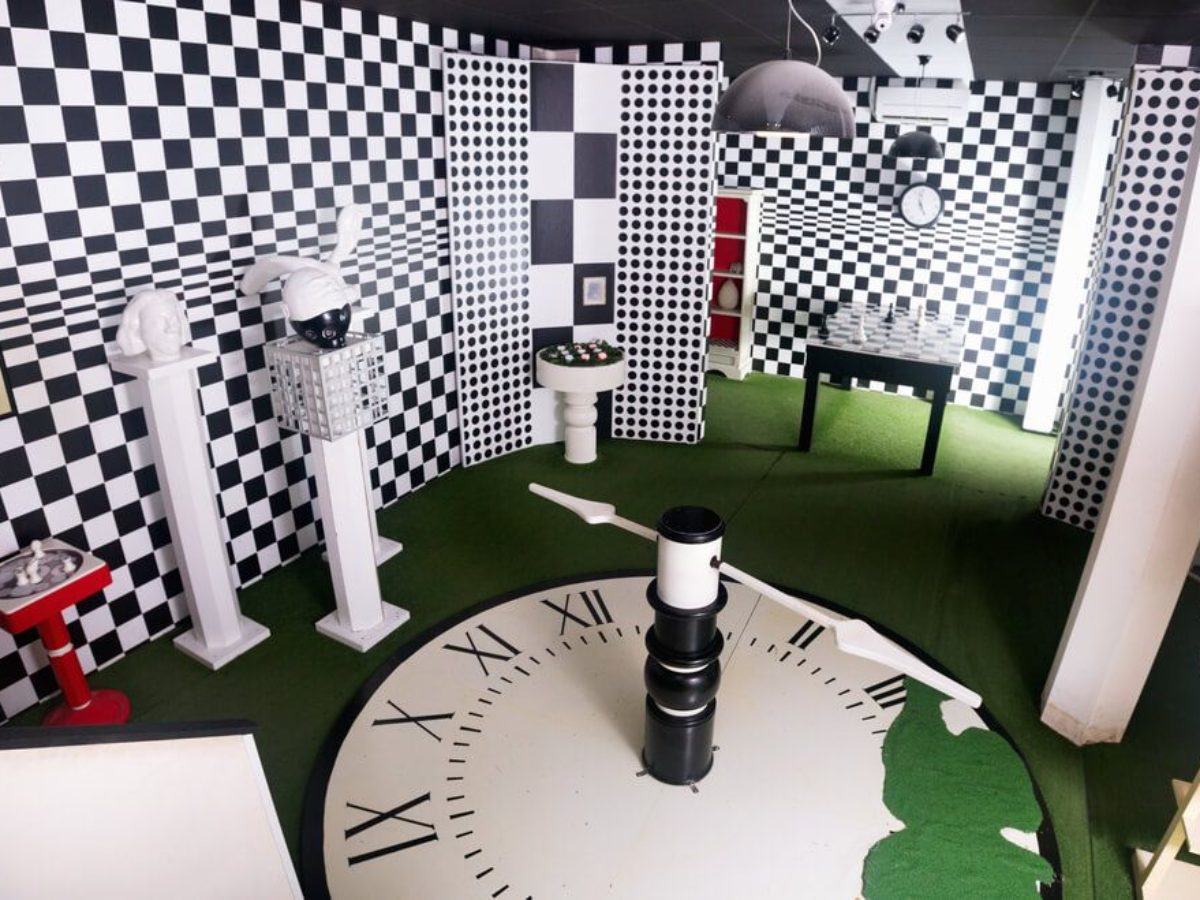Fun and Testing Escape Room-- Plan Your Following Experience
Fun and Testing Escape Room-- Plan Your Following Experience
Blog Article
Group Approaches: How to Work together Successfully in an Escape Space
Groups must proactively pay attention to each participant's understandings, assign functions that straighten with individual toughness, and maintain regular check-ins to make sure focus and prevent redundancy. By promoting an environment that values communication and flexibility, groups can substantially enhance their efficiency and success prices.
Establish Clear Communication

To promote clear interaction, it is necessary to assign a central factor of contact for info dissemination. This duty involves summarizing findings and suggested methods to guarantee everybody continues to be on the very same web page. Additionally, adopting a methodical method to conversations can protect against disorderly exchanges. Short, focused updates from each group participant can keep the team educated without overwhelming them with details - best escape room.

Appoint Duties Tactically
While clear interaction sets the structure for reliable team effort, assigning functions strategically ensures that each team member's toughness are utilized successfully. In an escape room situation, the time-sensitive and complicated nature of difficulties demands a well-organized technique to task delegation. By recognizing and leveraging private competencies, teams can maximize their problem-solving capacities and enhance total performance.
A person with a keen eye for detail may stand out in finding concealed items, while a logical thinker can be much better matched to resolving challenges. This function commonly calls for strong organizational and interpersonal skills.
Second, make sure that duties are flexible and adaptable. As brand-new challenges emerge, the team needs to have the ability to pivot, reallocating jobs as required. This versatility assists maintain energy and prevents traffic jams that could take place due to stiff role projects.
Ultimately, a critical method to role job not only makes the most of the strengths of each employee however likewise cultivates a cohesive setting, driving the team towards an effective retreat.
Make Use Of Diverse Skills
Recognizing and taking advantage of the varied abilities within your team can significantly boost your efficiency in an escape area. Each employee brings special strengths to read this post here the table, and efficiently leveraging these capabilities can speed up problem-solving and improve total performance. As an example, a staff member with solid analytical skills might stand out at understanding intricate codes or patterns, while one more with keen observational capacities might promptly identify covert hints that others might forget.
Effective communication is crucial to using these diverse abilities. Urge group participants to articulate their understandings other and ideas without delay, ensuring that all possible remedies are considered. This comprehensive method cultivates a dynamic setting where creativity and essential thinking can grow. Furthermore, assigning jobs that straighten with each member's strengths can avoid traffic jams and make sure that progression is constant.
Furthermore, diversity in skills often converts to variety in thinking designs, which is vital in a retreat area setting. While some challenges might need rational reasoning and accuracy, others could take advantage of imaginative and lateral reasoning. By recognizing and leveraging this diversity, groups can resolve a more comprehensive series of challenges better, thereby increasing their chances of a successful escape.
Manage Time Successfully

Recognize noticeable challenges and separate jobs based on team members' staminas, ensuring that nobody is idle. This practice can assist keep the group focused and stop time from slipping away unnoticed.
In addition, avoid passage vision. If a problem is taking too long, revolve group participants or move on to an additional obstacle, returning later on with fresh viewpoints. Communication you can look here is paramount-- keep every person updated on resolved challenges and continuing to be tasks to avoid repetitive initiatives.
Finally, use any type of hints or ideas moderately but tactically - best escape room. Recognizing when to request aid can conserve beneficial time. By sticking to these time monitoring concepts, groups can considerably boost their opportunities of an effective and satisfying getaway space experience
Debrief and Show
Reflection is a crucial facet of team advancement and enhancement in the context of retreat spaces. Once the challenge is completed, whether effectively or not, it is important for the team to take part in a structured debriefing session. This procedure allows employee to evaluate their efficiency, identify staminas, and identify locations for improvement.
Begin the debrief by reviewing what worked out. Highlight certain instances of efficient communication, problem-solving, and partnership. Acknowledging these favorable actions reinforces them and motivates their rep in future difficulties.
Following, attend to the challenges ran into. Go over moments of complication, miscommunication, or ineffective strategies. Urge an open and positive dialogue where team participants can share their perspectives without anxiety of criticism. This cultivates a culture of constant improvement and knowing.
Conclusion
In final thought, effective cooperation in a retreat area is asserted upon clear interaction, critical duty jobs, the effective use of varied abilities, and skillful time management. By producing a cohesive and flexible team atmosphere, the chance of successfully solving problems and attaining the goal of leaving the room is substantially boosted.
Report this page